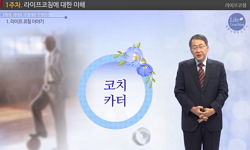This paper had analyzed the Japanese economy in three divided terms in order to clarify the change of expectation formation. The empirical research applied the macro model, which was renewed in this work and a VAR model. The results are as follows: in...
http://chineseinput.net/에서 pinyin(병음)방식으로 중국어를 변환할 수 있습니다.
변환된 중국어를 복사하여 사용하시면 됩니다.
- 中文 을 입력하시려면 zhongwen을 입력하시고 space를누르시면됩니다.
- 北京 을 입력하시려면 beijing을 입력하시고 space를 누르시면 됩니다.

영문 ; 기대형성에 관한 분석: 1985년 이후 일본통화정책을 대상으로 = English ; An analysis on expectation formation: Japanese Monetary Policy since 1985
한글로보기https://www.riss.kr/link?id=A99928692
- 저자
- 발행기관
- 학술지명
- 권호사항
-
발행연도
2014
-
작성언어
-
-
주제어
버블붕괴 ; 기대가설 ; 경기침체 ; 금융정책 ; Expectation Hypothesis ; Depression ; Unanticipated Money Volume ; VAR
-
KDC
300
-
등재정보
KCI등재
-
자료형태
학술저널
- 발행기관 URL
-
수록면
1-20(20쪽)
- 제공처
-
0
상세조회 -
0
다운로드
부가정보
다국어 초록 (Multilingual Abstract)
This paper had analyzed the Japanese economy in three divided terms in order to clarify the change of expectation formation. The empirical research applied the macro model, which was renewed in this work and a VAR model. The results are as follows: in the first term, economic agents formulated their expectation for the effect of monetary policy with the Keynesian hypothesis. They did not use the past variability in the price level as information for their anticipation. In the second term, economic agents started to use the expected price level as information for investment decisions, as the adaptive hypothesis means. This was because, the economic agents had learned from the first term that the expansive monetary policy increased the inflation rate and after that the bubbles bursted. In the last term, the empirical research showed that the rational expectation hypothesis was an appropriate way to explain the reality of economic. It means that the monetary policy loses its effect steadily and that the Japanese economic policy makers have to recognize this condition.
동일학술지(권/호) 다른 논문
-
한국과 중국의 제조산업의 솔로우 잔차항에 관한 비교실증분석
- 국제지역학회
- ( Yan Hua Zhu )
- 2014
- KCI등재
-
- 국제지역학회
- ( Min W Ko )
- 2014
- KCI등재
-
영문 ; CGE모형을 이용한 중국-대만 경제협력기본협정의 경제적 영향분석
- 국제지역학회
- ( Jong Hwan Ko )
- 2014
- KCI등재
-
국제통상 : 한국의 금융역할 심화와 부채주도 성장 및 소득불평등
- 국제지역학회
- ( Eui Dong Kim )
- 2014
- KCI등재





 KISS
KISS






